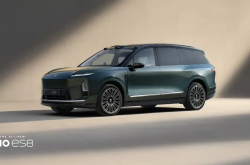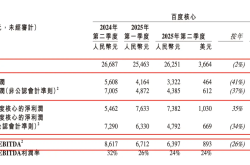The EU plans to impose tariffs on Chinese electric vehicles, with voices raised from various parties at home and abroad
![]() 06/14 2024
06/14 2024
![]() 627
627
Bianniushi reported today
On June 13, it was reported that on June 12, the European Commission issued a statement saying that it plans to impose temporary countervailing duties on electric vehicles imported from China. On top of the current 10% tariff, the EU intends to impose temporary countervailing duties ranging from 17.4% to 38.1% on imported electric vehicles from China.
If negotiations with the Chinese authorities fail to reach a solution, the policy will be implemented from July 4.
This means that starting from July 4, Chinese automakers exporting new energy vehicles to Europe will need to pay a total tax of up to nearly 50%.
According to the EU's published plan for the specific division of the additional tax rates for Chinese electric vehicle companies:
For the three sampled automakers BYD, Geely, and SAIC Motor that cooperated with the investigation in the early stage, taxes of 17.4%, 20%, and 38.1% will be imposed respectively.
A 21% tariff will be imposed on automakers that cooperate with the investigation but are not sampled.
A 38.1% tariff will be imposed on automakers that do not cooperate with the investigation.
Why do the three sampled automakers receive different treatments, and SAIC Motor in particular faces the highest tax rate? Perhaps the EU formulated this based on the degree of cooperation in the investigation.
Previously, SAIC Motor responded aggressively to the anti-subsidy investigation, stating that the company has provided all necessary information related to the anti-subsidy investigation in accordance with WTO and EU rules. However, commercially sensitive information such as battery formulas should not fall within this scope.
If this policy is implemented, a new energy vehicle worth 200,000 yuan exported to Europe by SAIC Motor will need to pay nearly 100,000 yuan in taxes alone. Even for BYD, which faces the lowest tax rate, it will still need to pay nearly one-third of the tariff.
This additional cost, whether borne by the enterprise itself or eventually transferred to local consumers, will severely hinder the overseas development of automakers.
As for why this measure was taken, the EU's conclusion is that Chinese electric vehicle imports have severely benefited from unfair subsidies, posing a threat of economic damage to European electric vehicle manufacturers.
Key point: posing a threat of economic damage to European electric vehicle manufacturers.
It is understood that the normal process for similar investigations usually begins with complaints from the industry, followed by case filing and investigation by relevant agencies.
As the saying goes, the duck knows when the spring river water is warm. European automakers should be the first to perceive whether there is a threat and have the most say. However, they have not yet "complained," and the EU has already taken action.
Therefore, it remains questionable whether the EU's actions this time represent the interests of relevant enterprises.
In fact, Germany, the largest automobile manufacturer in Europe, has previously expressed clear opposition to the investigation. German Chancellor Scholz said, "We will not close our market to foreign companies because we do not want our companies to be treated the same way in foreign markets."
Germany's Minister of Transport, Minister of Economy, and Minister of Finance all stated that imposing tariffs on Chinese electric vehicles would not protect the development of related industries in Europe but would only harm German enterprises, the German economy, and a fair and competitive international trade environment.
In addition, the results of the EU's investigation are also controversial. According to reports from the China Association of Automobile Manufacturers, since the European Commission launched an anti-subsidy investigation into Chinese electric vehicles in October last year, the Chinese automotive industry has actively cooperated with the investigation from the perspective of maintaining the security and stability of the China-Europe automotive industry chain. Relevant enterprises have carefully provided materials as required by the investigation department. However, during the investigation, the European side preset the investigation results, selectively sampled enterprises, abused investigation powers, arbitrarily expanded the investigation scope, and seriously distorted the investigation results.
It is understood that the EU's anti-subsidy investigation is still ongoing, and the current tax rates are only temporary. The final measures will be implemented within four months after the implementation of the new policy (before November 4).
In addition, various parties at home and abroad have also voiced their opinions on the preliminary ruling of this investigation.
China's Ministry of Commerce: The EU has disregarded the facts and WTO rules, ignored China's strong opposition on multiple occasions, and disregarded the appeals and dissuasion of many EU member governments and industries. China is highly concerned and strongly dissatisfied with this. The Chinese industry is deeply disappointed and firmly opposed to this.
Hungarian Ministry of Economy: Does not support the EU's imposition of temporary countervailing duties on Chinese electric vehicles. The EU should support trade liberalization instead of imposing punitive tariffs.
Norwegian Finance Minister Siv Jensen: Norway will not follow the EU in imposing temporary countervailing duties on Chinese electric vehicles. Imposing tariffs on Chinese electric vehicles is irrelevant to the Norwegian government, and this approach is not advisable.
China's business community: Despite the fact that the EU's electric vehicle industry has not suffered any damage, has not proactively applied for an investigation, and has repeatedly expressed opposition, the European Commission still insists on taking taxation measures. At the same time, the EU has provided a large amount of subsidies to its electric vehicle and battery industries, which is a typical double standard. In the investigation of this case, the European Commission obviously violated WTO rules, and the investigation procedure was obviously unfair. Chinese responding enterprises could not complete the investigation procedure normally. Therefore, the European Commission ruled that Chinese enterprises received a high subsidy rate based on the so-called "facts available" rule. Chinese industry enterprises will resolutely pick up legal weapons to defend their legitimate rights and interests under WTO rules.
China Association of Automobile Manufacturers: The European Commission has disregarded the facts in disclosing information on the anti-subsidy investigation of Chinese electric vehicles. In this regard, the China Association of Automobile Manufacturers deeply regrets and expresses its firm inability to accept it. The China Automobile Association hopes that the EU automotive industry will rationally think and actively act to jointly maintain the current situation of fair competition and mutual benefit between the two sides and jointly promote the healthy and sustainable development of the global automotive industry.
Simon Schütz, chief spokesman for the German Association of the Automotive Industry: Rational dialogue should be used to jointly find solutions that are in the interests of both parties, but the solution "definitely should not be to impose tariffs."
SAIC Motor: We are deeply disappointed with the decision of the European Commission. The relevant measures not only violate the principles of market economy and international trade rules but may also have a significant adverse impact on the stability of the global automotive industry chain and China-Europe economic and trade cooperation. SAIC Motor calls on the European Commission to carefully consider its decision and engage in constructive dialogue with global automotive industry partners, including China, to jointly find solutions that promote fair competition and sustainable development.
Oliver Zipse, Chairman of BMW Group: The European Commission's decision to impose tariffs on Chinese electric vehicles is wrong. Imposing tariffs will hinder the development of European automakers and also harm Europe's own interests. Trade protectionism is bound to trigger a chain reaction: responding to tariffs with tariffs and replacing cooperation with isolation.
Mercedes-Benz: Always supports free trade based on WTO rules, including the principle that all market participants should enjoy equal treatment. Free trade and fair competition will bring prosperity, growth, and innovation to all parties. If protectionism is allowed to rise, it will have negative consequences for all stakeholders. The Mercedes-Benz Group will closely monitor the development of the situation.








